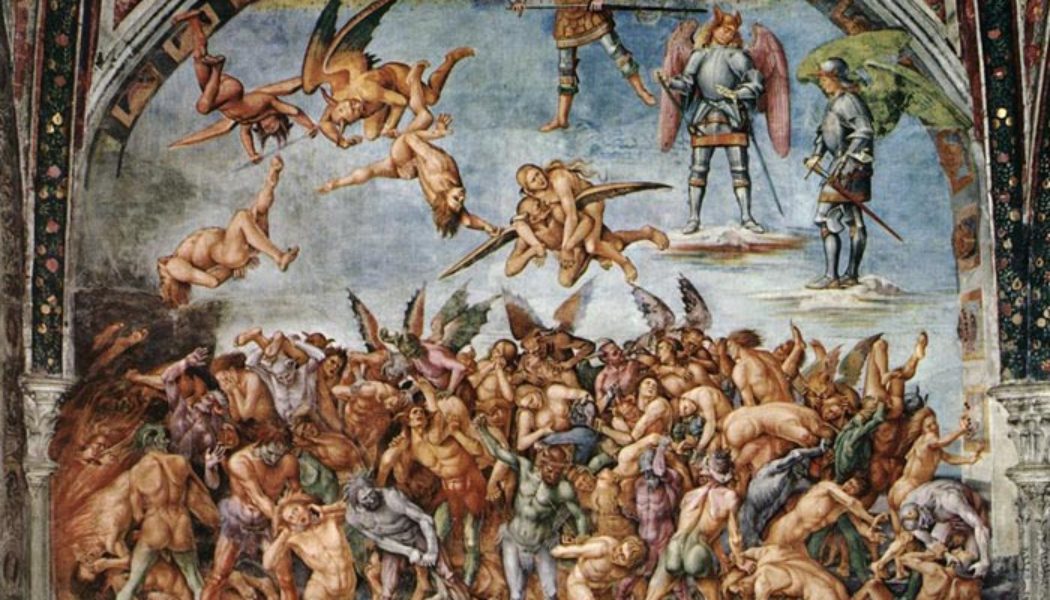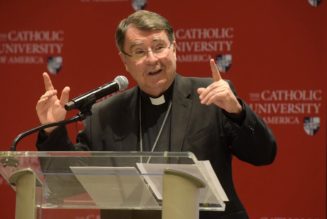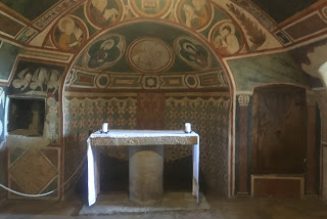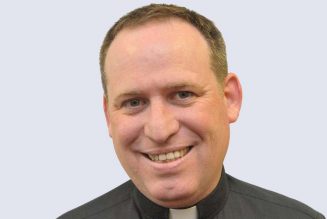Stephen P. White
The Flemish bishops of Belgium published a document this week on pastoral care for homosexual persons. The most notable aspect of the document is its inclusion of a text for blessing same-sex couples. The bishops plan to present the text to Pope Francis when they travel to Rome for their ad limina visit later this year.
One of the more exasperating particulars in this case is that the Congregation for the Doctrine of the Faith published a response to questions about the blessing of same-sex unions just last year. That document, published with the express approval of Pope Francis, makes clear that, “the Church does not have, and cannot have, the power to bless unions of persons of the same sex.”
If one were to read the CDF’s document and the Flemish bishops’ side by side, not knowing which was published first, it would be very easy to assume that the former was a direct response and rebuttal of the latter. That the Flemish bishops felt they could contradict the CDF and Pope Francis so openly, and with impunity, is as telling as it is troubling.
It’s not just that the Flemish bishops ignored the CDF’s clear directive; it’s as though they went out of their way to explicitly contradict it. The Belgian bishops are borrowing a page out of the playbook of their German confreres: Craft a proposal that upends or twists Church teaching (usually taking sides with the spirit of the age against the Church on matters dealing with sex), wrap it up with cherry-picked quotations from Pope Francis, and then, over Rome’s objections, present it as a fait accompli.
For his part, the Holy Father has made it clear, repeatedly, that he has reservations about the direction being taken by the German Synodal Way. He may do the same with the Flemish bishops. But it is also clear that the more progressive bishops conferences in Europe feel no qualms about blowing through every yellow caution light Rome flashes their way.
The Flemish bishops, for their part, have gone out of their way to insist that the blessing of homosexual unions must not be mistaken for the sacrament of marriage. Fair enough. But this emphasis, if anything, only underscores how far off its moorings the Belgian pastoral approach has drifted in its attempt to condone and bless such unions.
It is as if the Flemish bishops are saying, “No, see, this is okay because we’re only blessing couples who engage in sexual activity outside of the sacrament of marriage.”
(A spokesman for the Flemish bishops, somewhat comically, tried to suggest that the text for a blessing included in the bishops’ document wasn’t really a “blessing,” but no one is buying that line. As Fr. James Martin pointed out to the Washington Post, the text is clearly “asking God to be with same-sex partners not only in the home they share, but in what the prayer calls their ‘commitment.’”)

Of course, the Church’s fundamental objection to homosexual unions is not that they “look like marriage” (that objection is secondary); it is precisely that such unions are premised on sexual acts outside of marriage. And sexual acts outside of marriage are objectively wrong. For everyone.
And that, it seems, is the sticking point. The only way to make any sense of the Belgian bishops’ position is to hold – as they suggest that they do – that sexual unions outside of marriage (homosexual or otherwise), while not marriages, constitute some other neutral or even positive good.
Here the Flemish bishops run head-on into the position laid out so well by the CDF last spring:
[I]n order to conform with the nature of sacramentals, when a blessing is invoked on particular human relationships, in addition to the right intention of those who participate, it is necessary that what is blessed be objectively and positively ordered to receive and express grace, according to the designs of God inscribed in creation, and fully revealed by Christ the Lord. Therefore, only those realities which are in themselves ordered to serve those ends are congruent with the essence of the blessing imparted by the Church.
For this reason, it is not licit to impart a blessing on relationships, or partnerships, even stable, that involve sexual activity outside of marriage (i.e., outside the indissoluble union of a man and a woman open in itself to the transmission of life), as is the case of the unions between persons of the same sex. The presence in such relationships of positive elements, which are in themselves to be valued and appreciated, cannot justify these relationships and render them legitimate objects of an ecclesial blessing, since the positive elements exist within the context of a union not ordered to the Creator’s plan.
As I said, it is difficult to comprehend the position of the Flemish bishops except as an attempt to circumvent the Church’s teaching, based in Divine Revelation, that sexual acts belong only within marriage. As always, a failure in truth leads by a short path to failure in genuine charity. As the CDF wrote last year:
[T]he Church recalls that God Himself never ceases to bless each of His pilgrim children in this world, because for Him “we are more important to God than all of the sins that we can commit.” But he does not and cannot bless sin: he blesses sinful man, so that he may recognize that he is part of his plan of love and allow himself to be changed by him. He in fact “takes us as we are, but never leaves us as we are.”
Accompanying people with same-sex attraction – each one a son or daughter of God – requires a confidence in the gift of God’s revealed plan for human sexuality. Wavering on the meaning of that gift, indulging confusion about the beauty and significance of that gift, helps no one.
To do so is to risk transforming a great blessing into a curse.
_____
 Stephen P. White is executive director of The Catholic Project at The Catholic University of America and a fellow in Catholic Studies at the Ethics and Public Policy Center.
Stephen P. White is executive director of The Catholic Project at The Catholic University of America and a fellow in Catholic Studies at the Ethics and Public Policy Center.
Fr. Gerald E. Murray
The Flemish-speaking bishops of Belgium have issued a so-called blessing service for the union of homosexual couples. This imposture is obviously in complete contradiction to the Catholic Faith – an unholy parody of the blessing given within a Catholic marriage ceremony. It represents a manifest loss of faith on the part of these shepherds, who swore to uphold the Catholic Faith at the time of their episcopal consecration and have now publicly rejected that Faith by embracing what is offensive to God.
He created man and woman with complementary sexual faculties and commanded them to be fruitful and multiply. He also forbade them to misuse their sexual faculties by engaging in sodomy.
When a priest blesses a man and a woman who pledge their vows in marriage, he is calling upon God to favor them with His grace and strength to fulfill those vows. God’s favor does not, and cannot, rest upon two men or two women who pledge to violate His law by promising to sodomize each other.
Sodomy is a mortal sin that violates the natural order created by God through a grave misuse of the sexual faculty – a plain violation of the natural law, condemned in the Sacred Scriptures as a sin of grave moral turpitude.
The embrace of sodomy by these bishops is disgraceful. The prayer they suggest for the conclusion of the “blessing” ceremony runs: “God. . . .You know their hearts and the path they will take together from now on. Make their commitment to each other strong and faithful.”
God has already told us that He condemns the path that these two have embarked upon. Mortal sin is a path to Hell. A commitment to engage in mortal sin is a deadly pact that spiritually harms each person involved. Asking God to make this deadly pact “strong and faithful” is a diabolical perversion of the duty of the Church’s ministers to lead the sheep away from sin with the help of God’s grace.
Do these bishops think that God wants people to ask His help in violating His law?
What the bishops have done is stupefying. They’re false shepherds, leading their sheep astray into grave sin. They are confirming people in behavior that destroys souls.
The suggested “vows” include this incredible prayer: “We thank you that we could find each other. We want to be there for each other in all circumstances of life. We confidently express here that we want to work on each other’s happiness, day by day.”

No thanks should be offered to God for finding an accomplice in mortal sin. God condemns mortal sin. He wants us to avoid both it and the near occasion of sin, which means we should shun unholy friendships that may lead to sin. Leading someone to commit sodomy will never produce happiness, but rather plunges the soul into the darkness and disorientation of separation from God.
The bishops attempt to justify their departure from the Faith by making the specious claim that homosexuals who “choose to live as a couple” have entered into a relationship that “can be a source of peace and shared happiness for those involved.”
Do the bishops really believe that violating God’s law brings peace and happiness? If they do, then they need to recognize their spiritual blindness and repent. They cannot pledge that they are faithful to Christ and his Gospel, and at the same time reject the Divine Law on sexual morality. If they will not repent, they should resign.
But we all know that they will not do that. They view themselves not as willful subversives working to overthrow Christian morality, but rather as bold prophets of a new, reworked Christianity in which sodomy is no longer sinful, but is rather part of God’s plan for Creation.
They describe homosexual unions as “life situations that do not fully live up to the objective ideal of marriage.” But sodomite unions are not “life situations” that happen outside of one’s control. They are a freely chosen way of life that in no way resembles marriage, but rather is a complete counterfeit. Marriage is not an “objective ideal,” in the sense of something one can strive for but which, in fact, only a few attain. Marriage is God’s plan for man and woman.
For these wayward shepherds, homosexual unions can be “the generous response one can give to God. . .the self-giving that God asks for amid the complexity of concrete restraints, even when the full objective ideal is not achieved.” This is nonsense, plain and simple. There is no “generous response to God” in violating God’s law and seeking to justify that violation by claiming that it is something that God allows and looks upon favorably.
The Flemish hierarchy has decided to launch a full-scale attack on the Catholic Faith under the guise of creating “a climate of respect, recognition and integration.” Their infidelity is in fact a clear example of disrespect to God and his law, and a refusal to recognize that law as being normative. Rather than promote the integration into Christ of those who are troubled with homosexual temptations, the wayward shepherds confirm them in a gravely sinful lifestyle by telling them that God approves of what they are doing.
Pope Francis is duty-bound to protect the flock from wolves, especially those who teach error with the authority given them by the Church when they were named bishops. The Catholic faithful need to hear from him that preaching error and immorality will not be tolerated.
The Catholics of Belgium need to be protected from their own bishops who are attempting to destroy Catholicism and replace it with a monstrosity of their own creation, a vicious system that promotes sin and thus separates man from God.
_____
 The Rev. Gerald E. Murray, J.C.D. is a canon lawyer and the pastor of Holy Family Church in New York City. His new book (with Diane Montagna), Calming the Storm: Navigating the Crises Facing the Catholic Church and Society, is now available.
The Rev. Gerald E. Murray, J.C.D. is a canon lawyer and the pastor of Holy Family Church in New York City. His new book (with Diane Montagna), Calming the Storm: Navigating the Crises Facing the Catholic Church and Society, is now available.
Images: *Sermon and Deeds of the Antichrist by Luca Signorelli, 1499-1502 [Chapel of San Brizio, Duomo, Orvieto, Italy]
**The same (detail)
You may also enjoy
Robert Royal’s The Sciences and Homophiliac Synodality
Ines A. Murzaku’s Shifting Models of Synodality
Join Our Telegram Group : Salvation & Prosperity









